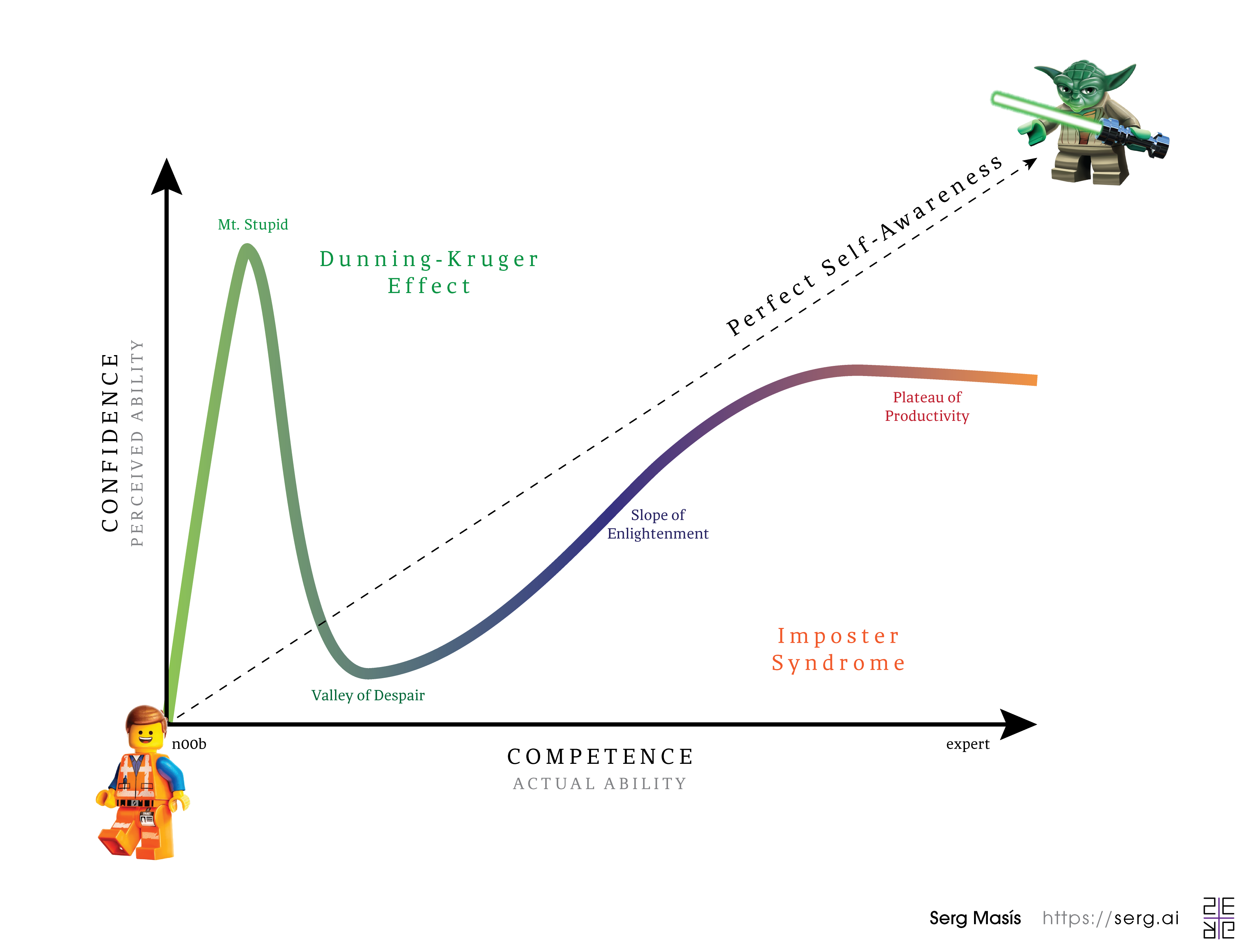
You are not alone!
Imposter Syndrome or imposterism happens when your perceived ability (confidence) is lower than your actual ability (competence). It causes you to feel like a fraud despite your best efforts to belong. 🙈 I've had this on and off throughout my career. And I used to think it was something to feel ashamed of, but I have realized it's much more common than you think.
📚 There's so much to learn in data science that it's easy to feel like a phony despite your best efforts to keep up. Talk shop with just about anyone in our field, and they'll bring up a method that you've never tried or a book or paper you've never read.
🤡 As bad as imposter syndrome can feel, over-confidence (like over-fitting) is much worse because it can lead to foolish mistakes. Unfortunately, newcomers tend to do this — a phenomenon called the Dunning-Kruger effect. In the worst cases, it will not subside till it's too late, as it did for Elizabeth Holmes, the infamous CEO of Theranos.

Above picture by: Serg Masís, Featured image by: PxHere
🎯 In any case, shortchanging yourself from some confidence is necessary because it fuels the humility and curiosity to continue learning in an ever-expanding field. However, I've understood that I shouldn't expect myself to know everything and let feelings of inadequacy paralyze me. Instead, I should avoid comparisons with others and channel any legitimate concerns into concrete goals.
